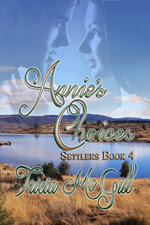 |
| Find all my books here |
The book is nearing completion and you have tied up all the ends, but that last paragraph is eluding you. It has taken me a long time to reach this last paragraph of my latest book due to the extensive amount of research required. As the end looms I have been pondering on which way to finish the journey. In the past, I have had little trouble finding a way to tie up all the loose ends, but with this time-travel, I am unsure which way to go. Stay in the past? Return to the future and begin the journey all over again?
Writers are advised to start the book with a great paragraph that makes the reader itch to find out just where this story will go. I believe endings are just as important. Pondering on the final scene of some great books of the past the first that sprang to mind was the last words from Rhett Butler in Gone with the Wind. His, “Frankly my dear I don’t give a damn,” will be forever remembered as one of the greatest ending lines after Scarlett asked him, “Where shall I go? Of course, that was only the concocted ending for the movie. The last line as written by the author was from Scarlett, and read, “After all, tomorrow is another day.”
One of the books I read as an eight or nine-year-old
child was A Christmas Carol. The edition given to me by one of my sisters was
illustrated and I can still remember the ghostly face of Marley, his former
business partner on Ebenezer Scrooge’s doorknocker as depicted at the beginning.
Most people know the last line of this book well, with Tiny Tom observing, “God
bless us, everyone.”
Being a writer of romance, of course I mostly look for a happy ever after, not so much of the couple riding off into the sunset, but being a romantic at heart, I do tend to show my protagonists at least ending very happily together. There is nothing more satisfying than reaching the final page of a book with a sigh, along with a feeling that you were enjoying it so much you couldn’t wait to finish yet when you did you were sad to see it end.
Here are a few of my favourite endings, some well-known and loved and some not so:
"I lingered round them, under that benign sky; watched the moths fluttering among the heath, and hare-bells; listened to the soft wind breathing through the grass; and wondered how anyone could ever imagine unquiet slumbers, for the sleepers in that quiet earth." Wuthering Heights, Emily Bronte
"She looked up and across the barn, and her lips came together and smiled mysteriously." The Grapes of Wrath, John Steinbeck
"God's in his heaven, all’s right with the world,' whispered Anne softly." Anne of Green Gables, Lucy Maud Montgomery
"And the ashes blew towards us with the salt wind from the sea." Rebecca, Daphne du Maurier
"With the Gardiners, they were always on the most intimate terms. Darcy, as well as Elizabeth, really loved them; and they were both ever sensible of the warmest gratitude towards the persons who, by bringing her into Derbyshire, had been the means of uniting them." Pride and Prejudice, Jane Austen
Find some more amazing endings here:
https://www.washingtonpost.com/graphics/2019/entertainment/books/best-last-lines/


























